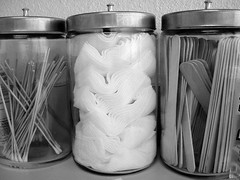 Even when you are right there next to your child to offer comfort, care and treatment, accidents and injuries can be difficult to deal with. So as we prepare our kids to go to summer camp, it is important to ask some questions of the camp and prepare our children well. That way, everyone can rest assured they are having a summer of fun and making memories to last a lifetime in a safe environment.
Even when you are right there next to your child to offer comfort, care and treatment, accidents and injuries can be difficult to deal with. So as we prepare our kids to go to summer camp, it is important to ask some questions of the camp and prepare our children well. That way, everyone can rest assured they are having a summer of fun and making memories to last a lifetime in a safe environment.
We’ve discussed many issues parents need to consider when choosing a camp, enrolling their child and sending them on their way on this blog. As families are signing their children up for camp next summer, here is a list of things to ensure are in place as you get your family ready for a summer away:
Camp is accredited by the American Camp Association. This requires camps to follow certain guidelines, including counselor to child ratios and other safety procedures.
 Camp requires staff safety training.
Camp requires staff safety training.
Camp has emergency contact information for your child.
Camp has been notified of any medical conditions and/or allergies your child has. Be sure to be specific when you communicate with the staff. Let the camp know the specific name of the condition as well as warning signs and steps to take to help your child. Click here for an ACA article on administering medications at camp.
Camp has provided written health protocols and policies.
Beyond physical safety concerns, ask how the camp deals with homesickness. We’ve talked about that topic on this blog as well and will also be discussing staying connected in another post.
Just as the camp can have multiple safety policies and procedures for kids, it is also important for our young ones to learn how to stay safe independently. So take the time (repeatedly) to ensure that you and your child
Know what’s safe and what isn’t. Review the camp’s handbooks for rules of conduct for campers. Review these with your child before he or she leaves for camp.
 Understand which kinds of behavior are acceptable and which aren’t. Breaking the rules can put others in dangerous situations.
Understand which kinds of behavior are acceptable and which aren’t. Breaking the rules can put others in dangerous situations.
Have good hygiene practices. Cover sneezes and coughs with their elbows (not their hands) and wash hands frequently.
Know when to notify a staff member and ask for help. Not every bump and bruise requires medical attention – make sure you and your child knows which is which. We have a health center with several present and a doctor that is on campus or visits daily.
These are all fairly simple ideas to keep families safe and camp is no different. If, as parents, we do our research, read the parent handbooks and camper manuals, ask all the right questions and talk with our children, everyone spends the summer relaxing, being cared for and as safe as possible. For more information, visit the ACA website and read more about this and other camp topics on their parent pages.
Olivia

Thanks for the images cyc4454 and timlewisnm.

